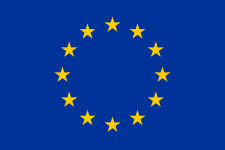
Building resilience to reduce polarisation and growing extremism
Context
Polarisation can be understood as a process of sharpening differences between groups in society that can result in increased tensions. It is a potential amplifying cause of the diverse psychological and social factors that make people vulnerable to radicalisation. [1]
In order to effectively prevent radicalisation we need to understand the dynamics of polarisation: how do ‘us-and-them thinking’, social division and hostility gain ground in our communities? And how can we effectively intervene into such extremist dynamics and build bridges to foster social cohesion?
[1] For more information, read : RAN Polarisation Management Manual (2017) or Bart Brandsma, Polarisation. Understanding the Dynamics of Us versus Them (2017).
Objectives
The overall objectives of this project are to raise awareness among local actors and strengthen their capacity to reduce individual and collective vulnerability to radicalisation while at the same time mitigating the phenomenon of polarisation:
- strengthen local polarisation detection and management tools
- assist local authorities in the development of actions to tackle tensions and social unrest trends
- promote community-based initiatives that imply cooperation between different public services and private actors
- bring together European local authorities and experts willing to address polarisation at the local level
Activities
Four stages are planned throughout the project:
- Development of tools to assess and monitor polarisation at the local level
- Design and implementation of 13 Local actions in 7 European countries
- Assessment of polarisation, using a methodological framework and tailor-made tools
- Development of targeted prevention actions to mitigate local phenomena of polarisation
- Project meetings and seminars in order to enable an accurate follow-up of local actions’ state of progress and exchanges between the 13 cities
- Production of a publication and webconference
Productions
- Working Paper: Assessing polarisation at local level – methodological toolbox for the local polarisation audits
- Markus Pausch: Polarisation in pluralist democracies: Considerations about a complex phenomenon
- Tim Chapman: Mitigating Polarisation: Lessons from the restorative justice approach
- Tim Chapman: Restorative Justice, an approach that contributes to the prevention and mitigation of polarisation at the local and regional level
- Markus Pausch: Polarisation and depolarisation at the local level
Publications
Pervading extremist opinions, sharpening forms of intergroup conflict and proliferating forms of ‘us-and-them’ thinking seem to increasingly mark the reality of many European societies today. While such forms of polarisation are often intertwined with transnational phenomena such as financial crises, migration movements, international terrorism or pandemics, they deeply impact social life at the local level.
This publication sheds light on how polarisation unfolds and how it impacts municipalities and regions across Europe. It gathers tools, practical examples and recommendations on how local and regional governments can better understand, diagnose and act against polarisation.
The short summary is available in English, French, Spanish, Italian and German.
Web conference
Mitigating Polarisation – lessons from the restorative justice approach – Thursday, 30 April
In this webconference, we approached the topic from the perspective of restorative justice. Key RJ concepts and measures such as accountability, mediation, respect and dialogue have a long and successful history in alleviating the harms of violence and crime. What can we learn from the approach when we seek to mitigate polarisation?
Consortium
Efus is the leader of the project
Partners :
Brussels (BE), Departmental council of Val d’Oise (FR), Düsseldorf (DE), Government of Catalonia (ES), Genk (BE), Igoumenitsa (GR), Leuven (BE), Reggio Emilia (IT), Region of Umbria (IT), Rotterdam (NL), Terrassa (ES), Stuttgart (DE), Vaulx-en-Velin (FR), Ufuq (DE), Real Instituto Elcano (ES)
Duration
January 2019 – July 2021 (36 months)
Contacts
Eszter Karacsony, Programme Manager – karacsony@efus.eu
Julia Rettig, Programme Manager – rettig@efus.eu

The project is financed at 90% by the European Union Internal Security Fund – Police









